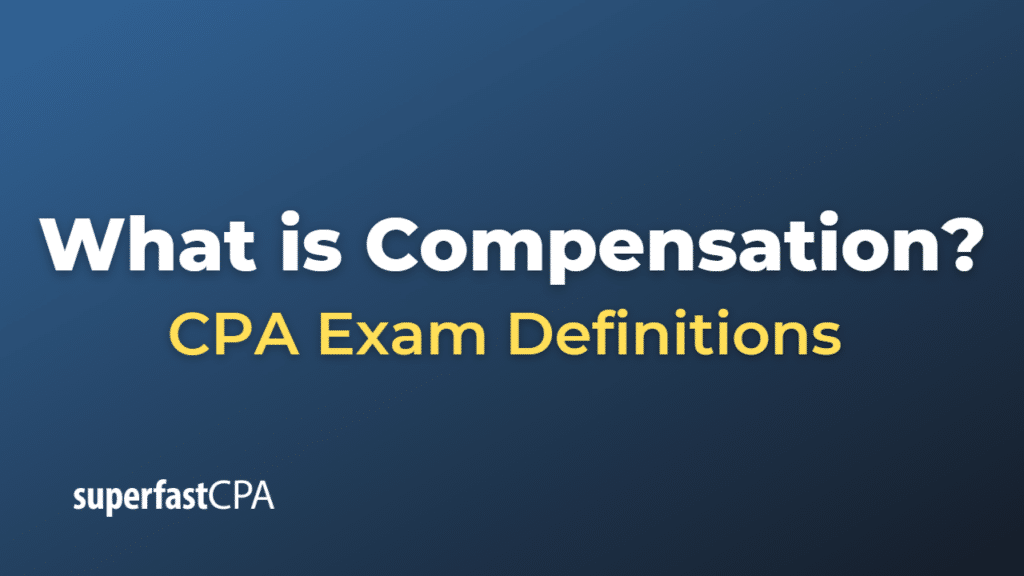Compensation
Compensation refers to the total remuneration, including salary, wages, bonuses, commissions, and benefits, provided by an employer to an employee in exchange for their work or services. Compensation can be in the form of cash or non-cash benefits, and it serves as a critical component of an employment relationship, helping to attract, motivate, and retain employees.
Compensation can be broadly categorized into two types:
- Direct compensation: This includes monetary payments made directly to employees for their work, such as:
- Base salary or hourly wages
- Overtime pay
- Bonuses or commissions
- Profit-sharing or stock options
- Indirect compensation: This includes non-monetary benefits provided to employees, such as:
- Health, dental, and vision insurance
- Retirement plans (e.g., 401(k) or pension plans)
- Paid time off (vacation, sick leave, personal days, etc.)
- Employee assistance programs
- Educational assistance or tuition reimbursement
- Company-provided perks (e.g., gym memberships, childcare assistance, or employee discounts)
Compensation plays a crucial role in attracting and retaining talent, as well as in motivating employees to perform at their best. Employers often use various compensation strategies, such as offering competitive pay rates, performance-based incentives, and comprehensive benefits packages, to create an attractive work environment and keep employees engaged and committed to the organization.
It is essential for companies to have a well-designed compensation system that aligns with their business objectives, market conditions, and employee expectations. This can help ensure that employees are fairly compensated for their efforts and contributions, fostering a positive work environment and promoting overall organizational success.
Example of Compensation
Let’s consider an example of a compensation package for an employee named Jane, who works as a marketing manager at XYZ Corporation.
Jane’s total compensation package consists of both direct and indirect compensation components:
- Direct Compensation:
- Base salary: $75,000 per year
- Annual performance bonus: Up to 10% of the base salary, depending on the company’s performance and individual performance (potential $7,500)
- Sales commission: 1% of the revenue generated by her team (e.g., if her team generates $500,000 in revenue, she would receive $5,000 in commission)
- Indirect Compensation:
- Health, dental, and vision insurance: XYZ Corporation covers 80% of the premium costs for Jane and her family.
- Retirement plan: XYZ Corporation offers a 401(k) plan and matches employee contributions up to 4% of the base salary (e.g., if Jane contributes 4% of her salary or $3,000, the company will also contribute $3,000).
- Paid time off: Jane receives 20 vacation days, 10 sick days, and 2 personal days per year.
- Educational assistance: XYZ Corporation offers a tuition reimbursement program, covering up to $5,000 per year for approved courses or degree programs.
- Employee discount: Jane receives a 10% discount on all products and services offered by XYZ Corporation.
In this example, Jane’s total compensation package includes both cash payments (base salary, bonus, and commission) and non-cash benefits (insurance, retirement plan, paid time off, educational assistance, and employee discount). This comprehensive compensation package is designed to attract, motivate, and retain Jane as a valuable employee at XYZ Corporation, ensuring that she feels fairly compensated for her work and contributions to the company.













